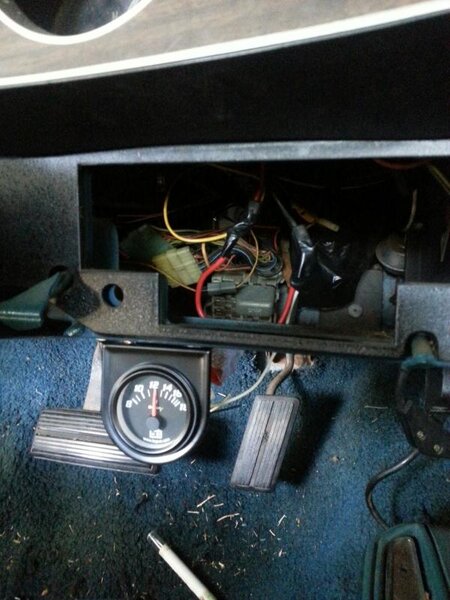I have a alternator that is putting out about 30V (at the alternator B), and a battery that's not getting charged, which is probably a good thing since the voltage is so high.
A little history, I think the original problem was the positive at the alternator was grounded to the alternator housing, there was no plastic grommet.
I've since put in a new alternator and a new voltage regulator with the same results. I added an extra ground to the voltage regulator and cleaned all connections from the battery ground to the body and block.
When I pull the green wire from the field, voltage drops to zero.
In my searching I noticed that the amp meter was getting hotter than **** with just the battery on, so I by passed it and added a inline 50amp fuse and volt meter thinking the amp meter was bad and was the main problem. No help, with the exception of no hot amp meter.
Suggestions would be helpful! Sometime this week I'm going to get another voltage regulator, I've heard horror stories of multiple bad ones and check the firewall connections.
Weird system that the amp meter/volt meter is always hot and not switched.

A little history, I think the original problem was the positive at the alternator was grounded to the alternator housing, there was no plastic grommet.
I've since put in a new alternator and a new voltage regulator with the same results. I added an extra ground to the voltage regulator and cleaned all connections from the battery ground to the body and block.
When I pull the green wire from the field, voltage drops to zero.
In my searching I noticed that the amp meter was getting hotter than **** with just the battery on, so I by passed it and added a inline 50amp fuse and volt meter thinking the amp meter was bad and was the main problem. No help, with the exception of no hot amp meter.
Suggestions would be helpful! Sometime this week I'm going to get another voltage regulator, I've heard horror stories of multiple bad ones and check the firewall connections.
Weird system that the amp meter/volt meter is always hot and not switched.



















